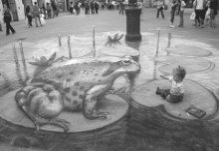题目内容
一家英语报社向中学生征文,主题是“十年后的我”、请根据下列要求和你的想象完成短文、家庭、工作业余生活
注意:1、字数100左右;2、可以适当增加细节,以使行文连贯;3. 开头语已为你写好
I often imagine what my life will be like in the future.
I often imagine what my life will be like in the future. I think my life will be very different in ten years. I will be twenty-eight years old by then. I will have my own family. Probably with a lovely child. I hope I will work in a computer company as a program designer. I will enjoy my work and get along well with my colleagues, I will do a good job in whatever I do. In my free time, I will continue to take regular exercise, such as swimming, running and various ball games. On my holidays, I will travel around the world. In a word, my life will be much richer and more colorful.
【解析】
试题分析:考查提纲类书面表达:这是一篇提纲类作文,我们需要用正确的英语把给出的要点表达出来. 动笔前,一定要认真分析要点,理解要点要表达的含义,不能遗漏要点,跑题偏题。本作文中给出的要点比较具体,故需要准确表达.写作时注意准确运用时态,上下文意思连贯,符合逻辑关系,尽量使用自己熟悉的单词句式,同时也要注意使用高级词汇和高级句型使文章显得更有档次。特别注意在选择句式时要赋予变化。平时除了加强词汇积累,写作联系以外,还可以适当记忆一些类似的范文,这样在考试中可以起到事半功倍的效果。
【亮点说明】范文中运用一些常见的短语 be different 不同;get along well with 与。。相处融洽;in my free time在我的业余时间;take exercise锻炼;I often imagine what my life will be like in the future.在这个句子出现what引导的宾语从句;I will do a good job in whatever I do这个句子中whatever引导名词性从句。In a work, my life will be much richer and more colorful.,在这个句子运用比较级,表示越来越。。



